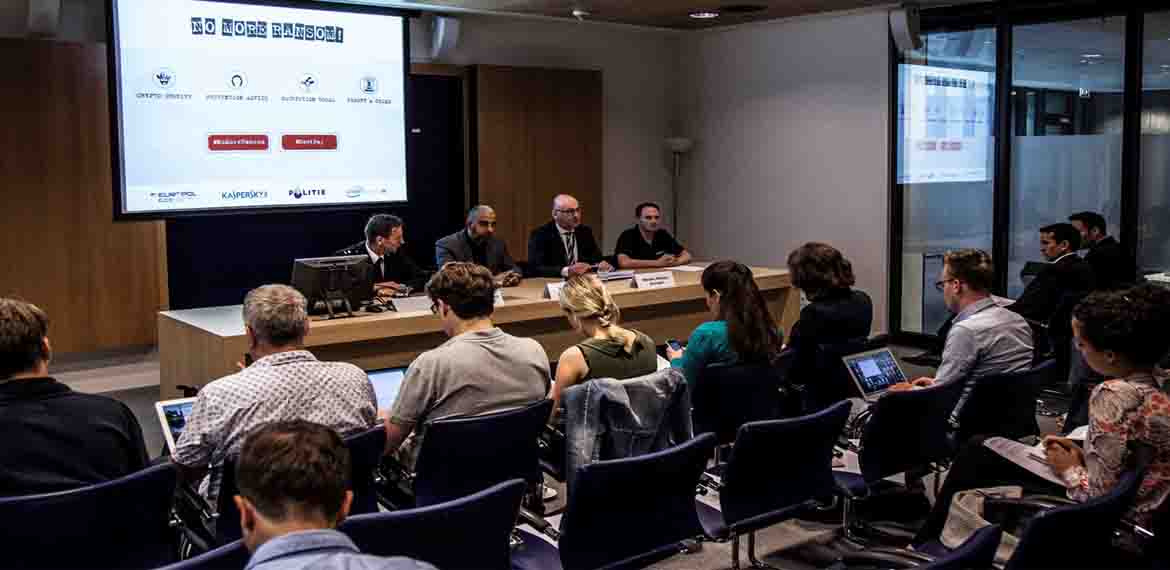Public – private cooperation
The project has been envisioned as a non-commercial initiative aimed at bringing public and private institutions under the same umbrella. Due to the changing nature of ransomware, with cybercriminals developing new variants on a regular basis, this portal is open to new partners’ cooperation.
“We, the Dutch police, cannot fight against cybercrime and ransomware in particular, alone. This is a joint responsibility of the police, the justice department, Europol, and ICT companies, and requires a joint effort. This is why I am very happy about the police’s collaboration with Intel Security and Kaspersky Lab. Together we will do everything in our power to disturb criminals’ money making schemes and return files to their rightful owners without the latter having to pay loads of money,” comments Wilbert Paulissen, Director of the National Criminal Investigation Division of National Police of the Netherlands.
“The biggest problem with crypto-ransomware today is that when users have precious data locked down, they readily pay criminals to get it back. That boosts the underground economy, and we are facing an increase in the number of new players and the number of attacks as a result. We can only change the situation if we coordinate our efforts to fight against ransomware. The appearance of decryption tools is just the first step on this road. We expect this project to be extended, and soon there will be many more companies and law enforcement agencies from other countries and regions fighting ransomware together,” says Jornt van der Wiel, Security Researcher at Global Research and Analysis Team, Kaspersky Lab.
“This initiative shows the value of public-private cooperation in taking serious action in the fight against cybercrime,” says Raj Samani, EMEA CTO for Intel Security. “This collaboration goes beyond intelligence sharing, consumer education, and takedowns to actually help repair the damage inflicted upon victims. By restoring access to their systems, we empower users by showing them they can take action and avoid rewarding criminals with a ransom payment.”
“For a few years now ransomware has become a dominant concern for EU law enforcement. It is a problem affecting citizens and business alike, computers and mobile devices, with criminals developing more sophisticated techniques to cause the highest impact on the victim’s data. Initiatives like the No More Ransom project shows that linking expertise and joining forces is the way to go in the successful fight against cybercrime. We expect to help many people to recover control over their files, while raising awareness and educating the population on how to maintain their devices clean from malware,” explains Wil van Gemert, Europol Deputy Director Operations.
Always report
Reporting ransomware to law enforcement is very important to help authorities get an overall clearer picture and thereby a greater capacity to mitigate the threat. The No More Ransom website offers to the victims the possibility to report a crime, directly connecting with Europol’s overview of national reporting mechanisms.
If you have somehow become a victim of ransomware, we advise you not to pay the ransom. By making the payment you will be supporting the cybercriminals’ business. Plus, there is no guarantee that paying the fine will give you back the access to the encrypted data.










